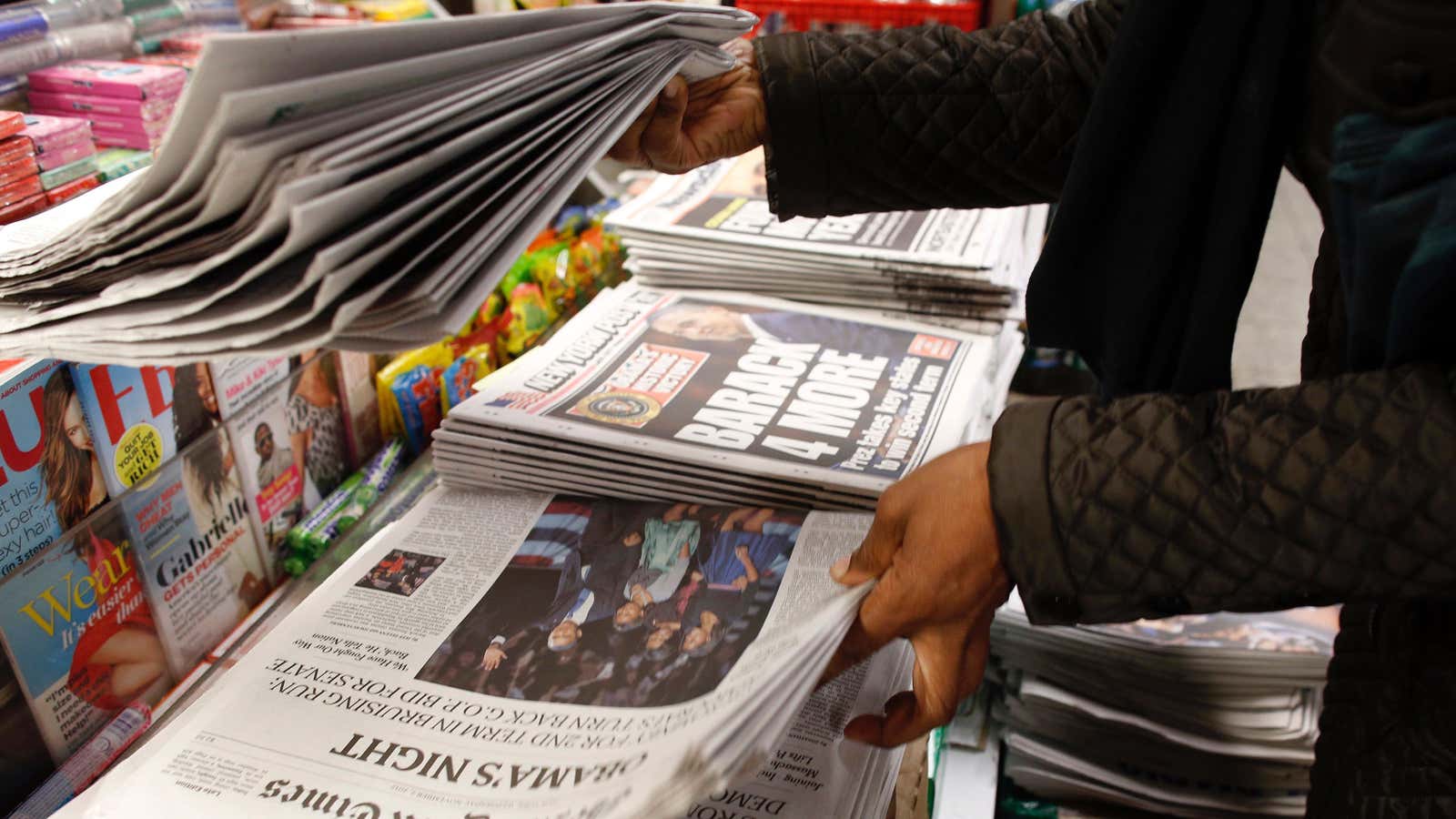In the aftermath of the 2016 US presidential election, the proliferation of “fake news” got a lot attention. The phenomenon received substantial coverage from very real news organizations, and some observers went so far as to blame Democrat Hillary Clinton’s loss to US president Donald Trump on these false stories that went viral on Facebook. Clinton herself called fake news an “epidemic.”
But it appears the impact of fake news has been exaggerated.
That’s at least according to a new study (pdf) from economists at Stanford University and New York University, which debunks the notion that fake news absorbed via Facebook was a decisive factor in the 2016 election. (The researchers focused on Facebook traffic because it dwarfs all other sources of fake news by “order of magnitude.”)
Though the researchers confirmed “that fake news was both widely shared and tilted in favor of Donald Trump,” their results indicated that the “true exposure” of readers to this news—in the sense that they saw, remembered, and believed a piece of fake news—has probably been greatly overstated.
Using web browsing data and survey responses, and comparing actual fake news stories that circulated to “placebo” stories they invented that never circulated, the researchers estimated that the average American actually remembers less than one—0.92—fake news stories favoring Trump, and 0.23 favoring Clinton. For these stories to have impacted the election, the researchers claim that “a single fake article would need to have had the same persuasive effect as 36 television campaign ads.”
The fundamental reason that “fake news”—defined by the researchers as stories that fact-checking websites like Politifact and Snopes deemed false—did not decide the election is that social media remains a secondary source of news for most Americans. The researchers conducted a survey of over a thousand Americans on their most important source news during the 2016 election, and only 14% responded that it was social media:
Though millions of fake news stories were shared on Facebook, people still get most of their news from TV and conventional news websites. “If you follow the public discussion, you might get the impression that a majority of Americans were getting most or a very large share of their news from social media.” Matthew Gentzkow, one of the authors of the study, told Vox. “[O]ur results showed something pretty different.”
After Trump’s victory, Facebook CEO Mark Zuckerberg said he thought the idea that fake news influenced the election was a “pretty crazy idea.” He may well have been right.
